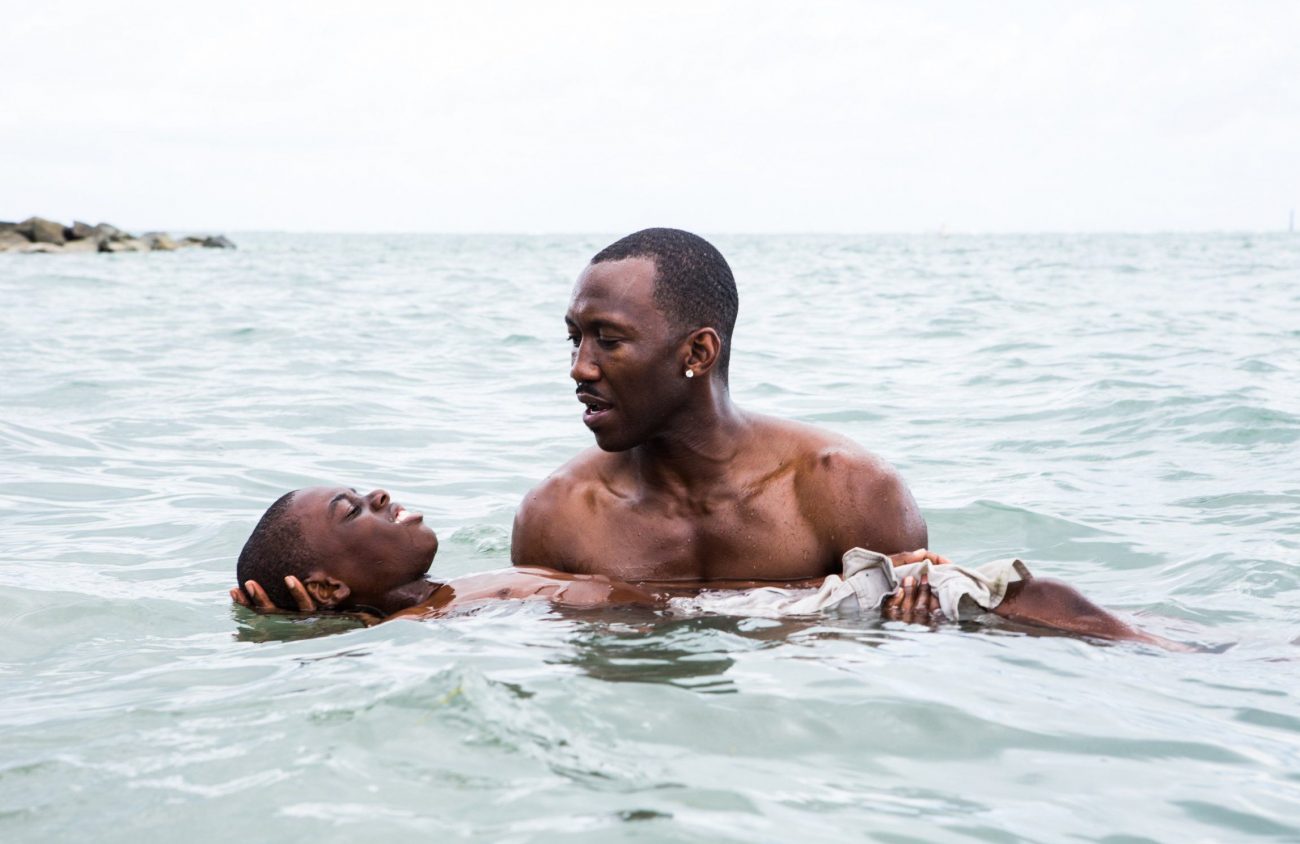As a critic expected to say something moderately interesting and revealing about the film at hand, I find myself in a difficult position here. I walked into a screening of Moonlight knowing little about the movie, only that it was receiving a good amount of acclaim.
In other words, I had no expectations, which allowed the film to wash over me unfiltered by any of the preconceived notions that, no matter how hard we try to stay open-minded, inevitably frame our experience.
I could tell you, for instance, that Moonlight is a coming-of-age story about a shy boy, Chiron (Alex Hibbert), who is taken under the wing of a compassionate crack dealer (Mahershala Ali), one of whose customers is the boy’s addict mother (Naomie Harris). In high school, Chiron (now played by Ashton Sanders) is bullied mercilessly. Later, he (now played by Trevante Rhodes) becomes a drug dealer in Atlanta. At the end of the film, Chiron returns to his childhood home to visit Kevin (André Holland), an old high-school friend with whom he once connected in a profound and life-changing way.
Chiron is black. Chiron is gay.
Likely you now have a pretty solid idea of what kind of film Moonlight aspires to be: The kind of picture critics might describe as a searing portrait of a gay African-American confronting obstacles of racism and homophobia in a tragic and/or triumphant overcoming on his way to forging identity, or dying in the process. Perhaps, like me, you hear this and expect a well-intentioned but rather ham-fisted treatment of social ills that flatters your liberal pieties in a way that is no less stimulating for being entirely familiar.
Now forget what you might think about all that. This is not that film.
Written and directed by Barry Jenkins, Moonlight is a deeply humane and emotionally poignant film that upends expectations at every turn. The movie seeks to reveal the quietest interstices of human loneliness and yearning, and in so doing it reaches outward beyond any trappings of its narrative to create a portrait that is universal and true. Unlike so many films these days, Moonlight places implicit trust in its audience; it resolutely refuses to yank your chain, opting instead simply to tell its story with a level of grace and patience that feels like a benediction.
If I described the most rudimentary outward trappings of my reality (straight, white, middle-class, college-educated), it would send up social flares that might help categorize me as a sociological being, but it would do nothing to reveal the layers of scar tissue that have built up over time, my armor against intimacy. I could give you the greatest hits of my life, show you the death-events and life-events, but neither would this be me.
We are not the events we undergo and the circumstances we suffer, but rather, it is our response to them that makes us, and this is where Moonlight succeeds in a way that most films fail. The movie is distinctly literary in its ambitions; Jenkins tells the story in three chapters, each one declaring itself with a whisper rather than a shout. And it’s all the more powerful for this attention to those almost inaudible details.
It’s rare to behold a film in which style and substance are so intimately bound in a single purpose. James Laxton’s cinematography is tender and physical, a kind of cinematic eavesdropping that rarely draws attention to itself; watching the film, it feels like you are being simultaneously allowed in and compelled to bear witness. The acting is fantastic, especially in the final chapter when Chiron and Kevin reunite at the cafe where Kevin works; Rhodes and Holland play the scene to faltering, fumbling perfection, painfully capturing the awkward longing of two human beings gambling against the risks of rejection and loneliness.
A film of uncommon beauty and humanity, Moonlight burrows down beneath the surfaces of identity — the face we front to the world, the things we call ourselves and each other — to locate that raw and hidden place where we all truly live, or fail to live, or die trying to find. For lack of a better word, call that place love. (Broadway Metro)
